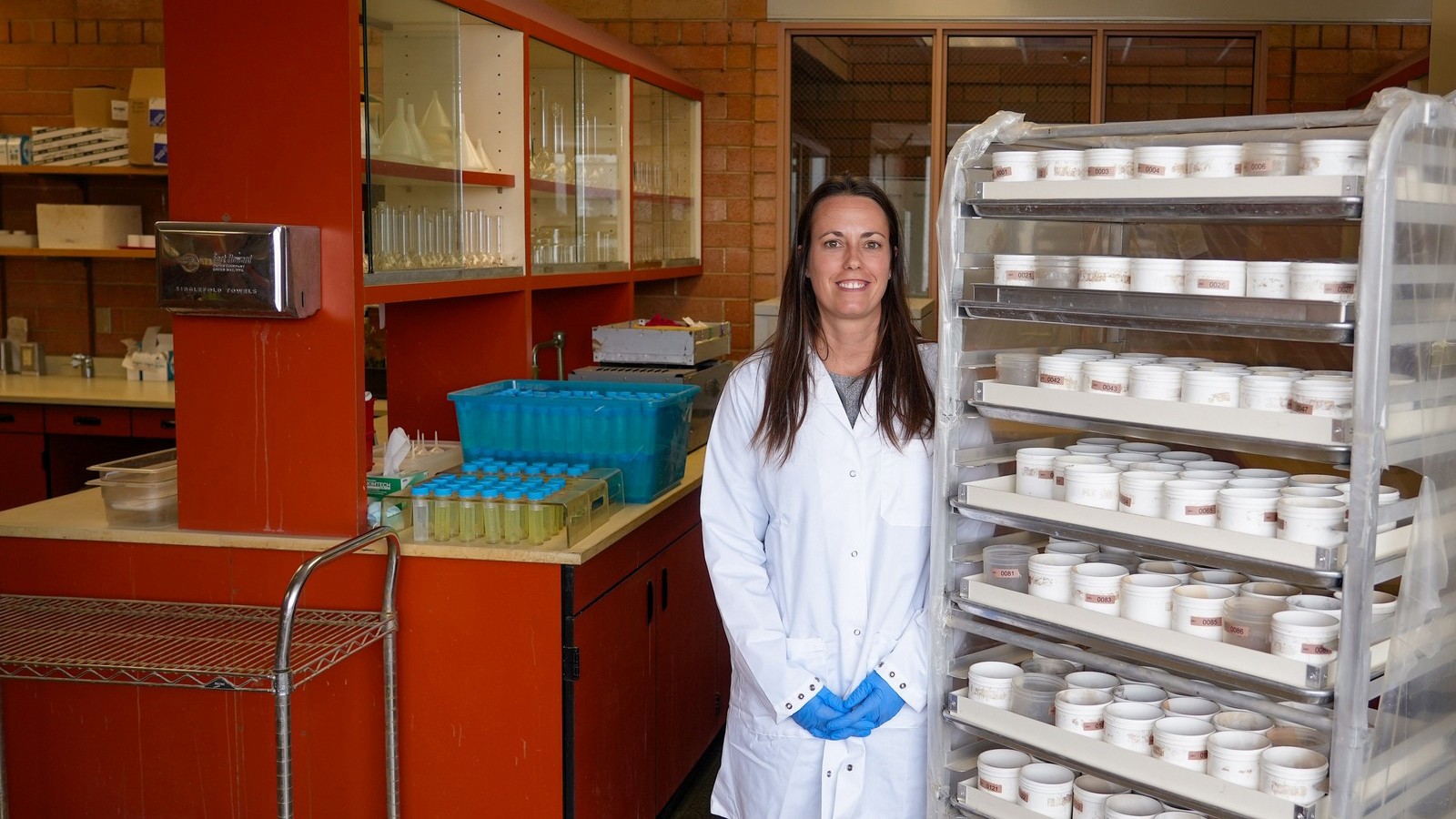USU Analytical Laboratories Offers Updated Soil, Feed and Water Testing
By Shelby Ruud Jarman |
The USU Analytical Laboratories recently updated several of the agricultural tests it offers, providing quicker and more accurate results ahead of the upcoming growing season.
Though work at Utah State University’s Analytical Laboratories (USUAL) goes on year-round, the arrival of spring means it is soil-testing season. The lab recently updated several of the agricultural tests it offers, providing quicker and more accurate results ahead of the upcoming growing season.
The USUAL provides testing and analysis services for soil, animal feed, manure, plant tissue, and for irrigation and livestock water. It has long been a valuable resource for researchers, farmers, and home gardeners in Utah, and the new tests will provide even more detailed information about the composition and quality of samples. Growers can improve their yield, protect the environment, and save money with the information gleaned from these tests.
“The biggest benefit from testing is that it helps grow healthier, more productive plants,” said Tiffany Evans, the lab manager. “Knowing the nutrient levels in your soil will also help you save money and help the environment by cutting down on over-fertilization.”
The upgraded tests include: the calcium carbonate method for soil, which is now more accurate with quicker results; the element scan for plant samples, which used to take nearly a whole day and now only takes two hours; the soil texture analysis, which is now more accurate. The nutritional scan for animal feed samples has also been updated with more recent data and can now analyze cover crops as well as alfalfa, grass hay, and silages.
“The lab is eager to help,” Evans said. “Anyone who has questions about their soils, whether they are from large-scale farms or small home gardens, is welcome to send us samples.”
Samples can come from anywhere, and they do. In total, the lab offers around 75 types of tests and analyzes approximately 8,000 samples per year. Instructions for collecting and sending samples to the lab are available online at https://www.usu.edu/analytical-laboratories.
The USUAL benefits from the world-class agricultural and horticultural research done by faculty with USU’s College of Agriculture and Applied Sciences, Utah Agricultural Experiment Station, and USU Extension.
“The interpretations and fertilizer recommendations that are provided with test results are based on research done at USU,” Evans said. “Since we are part of the university, the lab has the added benefit of working with USU Extension. The results for each sample are passed along to the USU Extension agents who are there to answer questions and offer help to those who need it. I think a major part of what makes the lab a success is the resources that are available as being a part of Utah State University.”
WRITER
Shelby Ruud Jarman
Writer
College of Agriculture and Applied Sciences
208-705-2282
shelby.ruud@usu.edu
CONTACT
Tiffany Evans
Lab Manager
Utah State University Analytical Laboratories
tiffany.evans@usu.edu
Comments and questions regarding this article may be directed to the contact person listed on this page.







